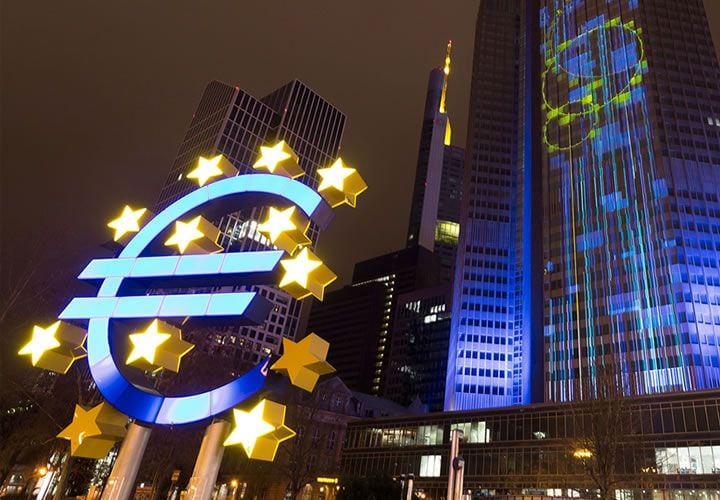Euro Strength Unlikely to be Halted by the ECB at September Meeting
- Written by: James Skinner
Any attempt by the ECB to talk the Euro lower at its early-September meeting is ultimately likely to be unsuccessful.
The European Central Bank may have only be able to halt the Euro's march higher temporarily should it choose to target the currency at its September meeting.
The EUR/USD exchange rate has risen by more than 13% during the year-to-date while the EUR/GBP exchange rate has risen 8%. The move will likely dampen demand for Eurozone goods and services while place downward pressure on imported inflation, something that many fear might elicit a response from the ECB.
So far, the response to the Euro's rise has been muted. Most recently, German Chancellor Angela Merkel shrugged off the currency’s appreciation in a press briefing.
Nevertheless, traders remain concerned the ECB might attempt to talk the currency down at its September 7 policy meeting.
How effective such a move would be does however remain questionable.
Currency strategists at Deutsche Bank say the currency is close to its fair-value at present, regardless of which fundamental model is used to determine an optimum price.
“The ECB meeting is coming up next week and there are rising risks of verbal intervention from Mario Draghi... ECB verbal rhetoric may cause a correction but is unlikely to be enough to derail Euro strength,” says George Saravelos, a London based foreign exchange strategist with Deutsche Bank.
On the Purchasing Power Parity measure, Saravelos notes the EUR/USD pair should trade around 1.23 while fundamental and behavioural exchange rate models suggest values a couple of percentage points either side of the 1.23 could be fair.
The Euro to Dollar exchange rate slid 0.21% for bids and offers to be accepted around the 1.1946 level lower Wednesday having hit a fresh two-year high at 1.2070 in the previous session.
The Euro to Pound Sterling exchange rate also eased back from recent eight-year peaks, dropping 0.30% to be quoted at 0.9239 pence.
“We see the risks as still skewed towards the Euro overshooting above 1.20 at some point this year rather than permanently reversing lower,” Saravelos says.
Euro-bulls will have grown in confidenc after Chancellor Merkel told reporters that the exchange rate and German trade surplus are outside of political control when asked about recent Euro strength on Tuesday.
Out on the campaign trail, the German leader’s comments belied a possible sense of ambivalence to the Euro rate in Berlin.
“The sheer size of Germany’s current account surplus and the straight line increase in the surplus throughout the period in which EUR/USD rallied from a record low of 0.8230 in 2000 to a high of 1.6038 in 2008 underlines the fact that Germany can withstand swings in FX,” says Derek Halpenny, head of global markets research at MUFG.
ECB chief Mario Draghi was also seen as expressing a similar ambivalence at the Jackson Hole gathering of central bankers on Friday, after omitting any comment on Euro’s surge from his speech.
Despite some voices suggesting intervention may not be far off, there appears a consensus that this will do little to dislodge the euro to US dollar rate from its current course.
“A EUR/USD break of 1.20 may cause a few headaches for the ECB, but there’s little they can do about it,” says Chris Turner, head of foreign exchange strategy at ING Group.
Get up to 5% more foreign exchange by using a specialist provider by getting closer to the real market rate and avoid the gaping spreads charged by your bank for international payments. Learn more here.





